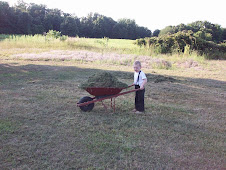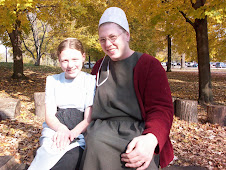
Micah and Rosa worked hard today, and they didn’t once complain about the odor that will be accompanying their boots for a few days. In order to try and save some costs for next year, Jenn and I decided to use the hog shelter for beef calves, and erect a simple livestock panel-and-tarp shelter for the pigs. Savings… four hundred dollars. For today, however, we first needed to tear down the hog pen so that we can place next years swine on fresh pasture. We are going to expand the hogs’ pasture area by about half, and we took down all of the panels and t-posts from this past year’s pen. That involved a lot of work that had to be performed in the areas where the pigs liked to eliminate waste. The smell didn’t bother any of us while we were outdoors, but when we got back into the garage, the smell of our boots and gloves was ripe, to say the least.
The subject of odors, however, or “fresh country air,” as some people like to say, can be a touchy one. It is true that many large-scale farmers tend to be bothered by suburbanites who move to rural areas and complain because the farms – well - they stink. Manure lagoons and spreaders do not produce the most pleasant aromas to be living with, unless you are profiting from them. As larger farmers like to say, the smell of manure is the smell of money. The fact is, however, that an ecologically considerate farm should not make the whole neighborhood smell like manure. If animals are pastured, and rotated properly, and the animals on the farm are all allowed the freedom to live the way God intends them to, the soil is improved, manure is spread throughout the pasture as chickens scratch it into the soil, and the smell is only evident when someone steps in a pie, or the pig pen has had about six months of continuous use. The only smell of manure that is around our home, other than when we step in something in the pasture, is the smell of manure that is spread by the dairy and egg farmers that apply it to plowed fields so that they can grow grain to feed animals stuck in confinement housing.
When people drive by a pasture full of cows or beef steers, they never say” “wow, that smells of manure.” They rather enjoy the vista, and smell real country air if their windows happen to be down. But, drive by many dairy farms, a corporate hog farm, or a corn or soy bean field at the right time of year, and you will surely smell “that fresh country air.” In fact, it is air pollution.
The suburban transplants shouldn’t complain about odors, though. Surely they enjoy the pleasure of cheap and endless supplies of confinement beef and pork, and processed food to fill their bellies with, while the land erodes away and future generations are left with fewer healthy food options.
The subject of odors, however, or “fresh country air,” as some people like to say, can be a touchy one. It is true that many large-scale farmers tend to be bothered by suburbanites who move to rural areas and complain because the farms – well - they stink. Manure lagoons and spreaders do not produce the most pleasant aromas to be living with, unless you are profiting from them. As larger farmers like to say, the smell of manure is the smell of money. The fact is, however, that an ecologically considerate farm should not make the whole neighborhood smell like manure. If animals are pastured, and rotated properly, and the animals on the farm are all allowed the freedom to live the way God intends them to, the soil is improved, manure is spread throughout the pasture as chickens scratch it into the soil, and the smell is only evident when someone steps in a pie, or the pig pen has had about six months of continuous use. The only smell of manure that is around our home, other than when we step in something in the pasture, is the smell of manure that is spread by the dairy and egg farmers that apply it to plowed fields so that they can grow grain to feed animals stuck in confinement housing.
When people drive by a pasture full of cows or beef steers, they never say” “wow, that smells of manure.” They rather enjoy the vista, and smell real country air if their windows happen to be down. But, drive by many dairy farms, a corporate hog farm, or a corn or soy bean field at the right time of year, and you will surely smell “that fresh country air.” In fact, it is air pollution.
The suburban transplants shouldn’t complain about odors, though. Surely they enjoy the pleasure of cheap and endless supplies of confinement beef and pork, and processed food to fill their bellies with, while the land erodes away and future generations are left with fewer healthy food options.



Hi, Scot, Jenn and gang!
ReplyDeleteNice to see the blog. I think of you often, and appreciate the time we had to visit last summer.
Thanks!
Raye
(OYM)